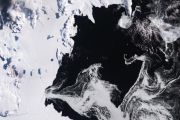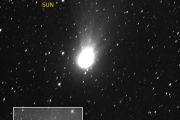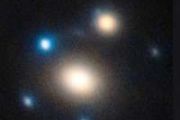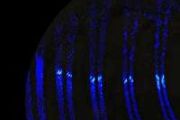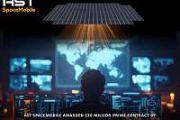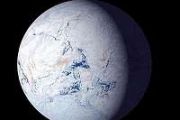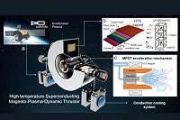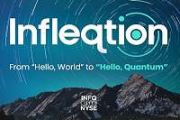
Copernical Team
NASA, Northrop Grumman to test fire future Artemis booster motor
 NASA and Northrop Grumman will perform a full-scale static test of a Space Launch System (SLS) solid rocket booster motor at Northrop Grumman's Promontory, Utah, test facility July 21. Engineers will fire the booster during the demonstration, called the Flight Support Booster 2 test, to evaluate materials and processes to improve boosters for future Artemis missions.
"The current SLS boost
NASA and Northrop Grumman will perform a full-scale static test of a Space Launch System (SLS) solid rocket booster motor at Northrop Grumman's Promontory, Utah, test facility July 21. Engineers will fire the booster during the demonstration, called the Flight Support Booster 2 test, to evaluate materials and processes to improve boosters for future Artemis missions.
"The current SLS boost US, Russian astronauts will swap seats on rockets again
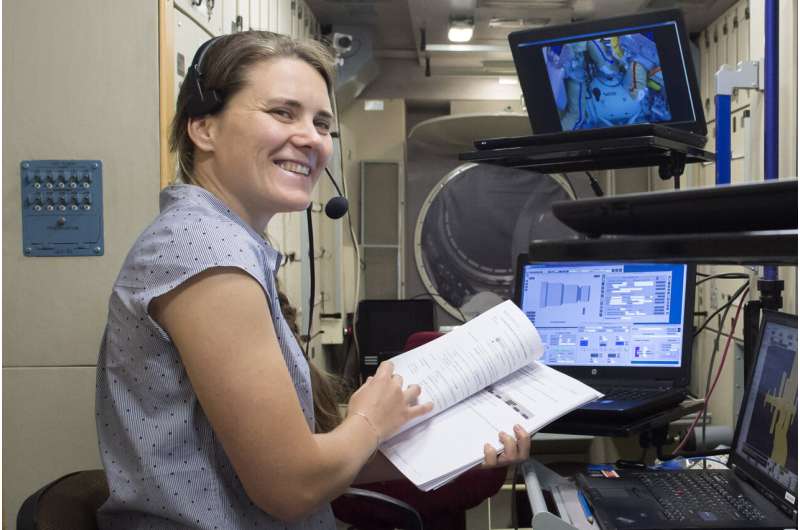
A little piece of Washington state blasted into space this week
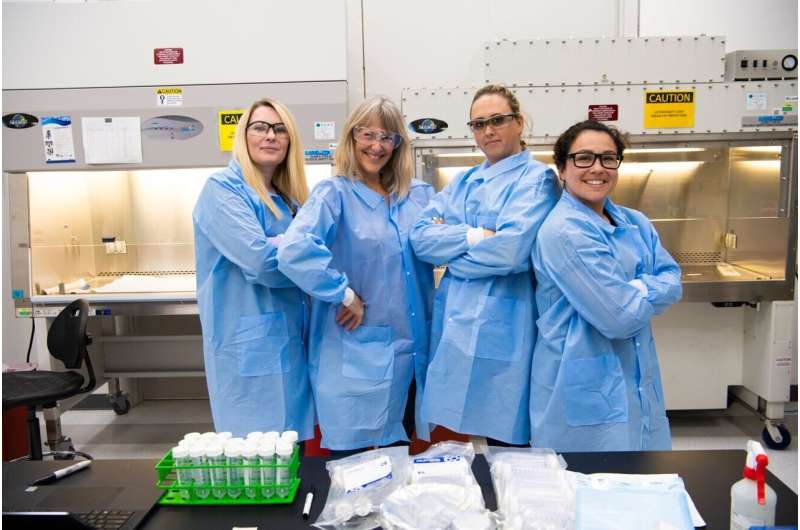
A tiny piece of rural Washington state—and some of its "inhabitants"— blasted off into space from Kennedy Space Center in Florida on Thursday, July 14.
The inhabitants are bacteria that live in the soil in Prosser, Wash. Scientists will study what the bacteria do in a microgravity environment to learn more about how soil microbial communities function in space. That's information scientists need to grow food either in space or on another celestial body.
The experiment, funded by NASA, is called DynaMoS, or Dynamics of Microbiomes in Space. The study is being conducted by researchers at the Department of Energy's Pacific Northwest National Laboratory.
US renews space flights with Russia in rare cooperation
 The United States and Russia said Friday they would renew flights together to the International Space Station, preserving one of the last areas of cooperation amid Western attempts to isolate Moscow over the invasion of Ukraine.
"To ensure continued safe operations of the International Space Station, protect the lives of astronauts and ensure continuous US presence in space, NASA will resume
The United States and Russia said Friday they would renew flights together to the International Space Station, preserving one of the last areas of cooperation amid Western attempts to isolate Moscow over the invasion of Ukraine.
"To ensure continued safe operations of the International Space Station, protect the lives of astronauts and ensure continuous US presence in space, NASA will resume Russian space chief Rogozin to get new job: Kremlin
 The head of Russia's space agency, who has made headlines with his bombastic statements and support for Moscow's Ukraine offensive, has been relieved of his duties and will get a new job, the Kremlin said Friday.
Dmitry Rogozin, a firebrand nationalist politician and one of the most ardent supporters of Moscow's offensive in Ukraine, was dismissed as head of Roscosmos, a Kremlin decree said.
The head of Russia's space agency, who has made headlines with his bombastic statements and support for Moscow's Ukraine offensive, has been relieved of his duties and will get a new job, the Kremlin said Friday.
Dmitry Rogozin, a firebrand nationalist politician and one of the most ardent supporters of Moscow's offensive in Ukraine, was dismissed as head of Roscosmos, a Kremlin decree said. NASA, SpaceX launch climate science research and more to space station
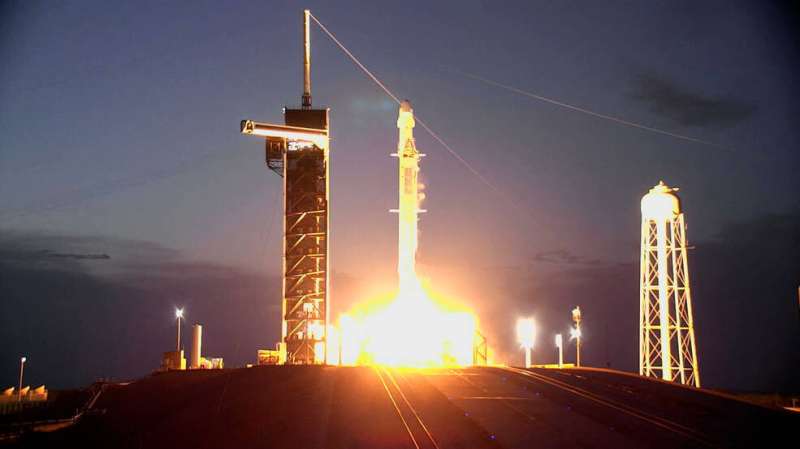
Among the science experiments being delivered, the JPL-developed EMIT instrument will help scientists determine how airborne mineral dust affects our planet.
A SpaceX Dragon resupply spacecraft carrying more than 5,800 pounds of science experiments, crew supplies, and other cargo is on its way to the International Space Station after launching at 8:44 p.m. EDT (5:44 p.m. PDT) Thursday from NASA's Kennedy Space Center in Florida.
The spacecraft launched on a Falcon 9 rocket from Launch Pad 39A at Kennedy for the company's 25th commercial resupply services mission for NASA.
NASA releases Webb images of Jupiter
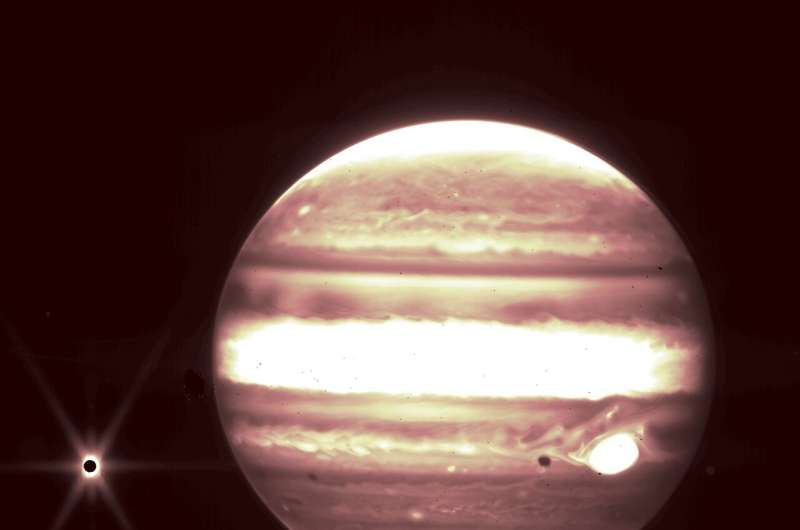
On the heels of Tuesday's release of the first images from NASA's James Webb Space Telescope, data from the telescope's commissioning period is now being released on the Space Telescope Science Institute's Mikulski Archive for Space Telescopes. The data includes images of Jupiter and images and spectra of several asteroids, captured to test the telescope's instruments before science operations officially began July 12. The data demonstrates Webb's ability to track solar system targets and produce images and spectra with unprecedented detail.
Fans of Jupiter will recognize some familiar features of our solar system's enormous planet in these images seen through Webb's infrared gaze.
Wildfire near Salamanca: before-and-after
 Image:
These Copernicus Sentinel-2 images, one year apart, show the area affected by wildfire around Las Batuecas - Sierra de Francia Nature Reserve near Salamanca in western Spain.
Image:
These Copernicus Sentinel-2 images, one year apart, show the area affected by wildfire around Las Batuecas - Sierra de Francia Nature Reserve near Salamanca in western Spain. Ariane 6 central core transferred to mobile gantry
 The Ariane 6 launch pad at Europe's Spaceport in French Guiana now hosts the first example of ESA's new heavy-lift rocket. This Ariane 6 combined tests model will be used to validate the entire launch system during its ground phase in readiness for the inaugural launch of Ariane 6.
The combined tests include filling tanks, and draining them in case of launch abort, count-down automated seq
The Ariane 6 launch pad at Europe's Spaceport in French Guiana now hosts the first example of ESA's new heavy-lift rocket. This Ariane 6 combined tests model will be used to validate the entire launch system during its ground phase in readiness for the inaugural launch of Ariane 6.
The combined tests include filling tanks, and draining them in case of launch abort, count-down automated seq Planet signs contract to provide German Federal Agencies with daily satellite imagery
 Planet Labs has announced that its wholly owned subsidiary, Planet Labs Germany GmbH, has signed a new contract with the German Federal Agency for Cartography and Geodesy (BKG) to provide the agency with daily, high-resolution satellite data for crisis response, environmental and nature conservation, as well as forest and agricultural monitoring.
Access to Planet's satellite data will help
Planet Labs has announced that its wholly owned subsidiary, Planet Labs Germany GmbH, has signed a new contract with the German Federal Agency for Cartography and Geodesy (BKG) to provide the agency with daily, high-resolution satellite data for crisis response, environmental and nature conservation, as well as forest and agricultural monitoring.
Access to Planet's satellite data will help 






